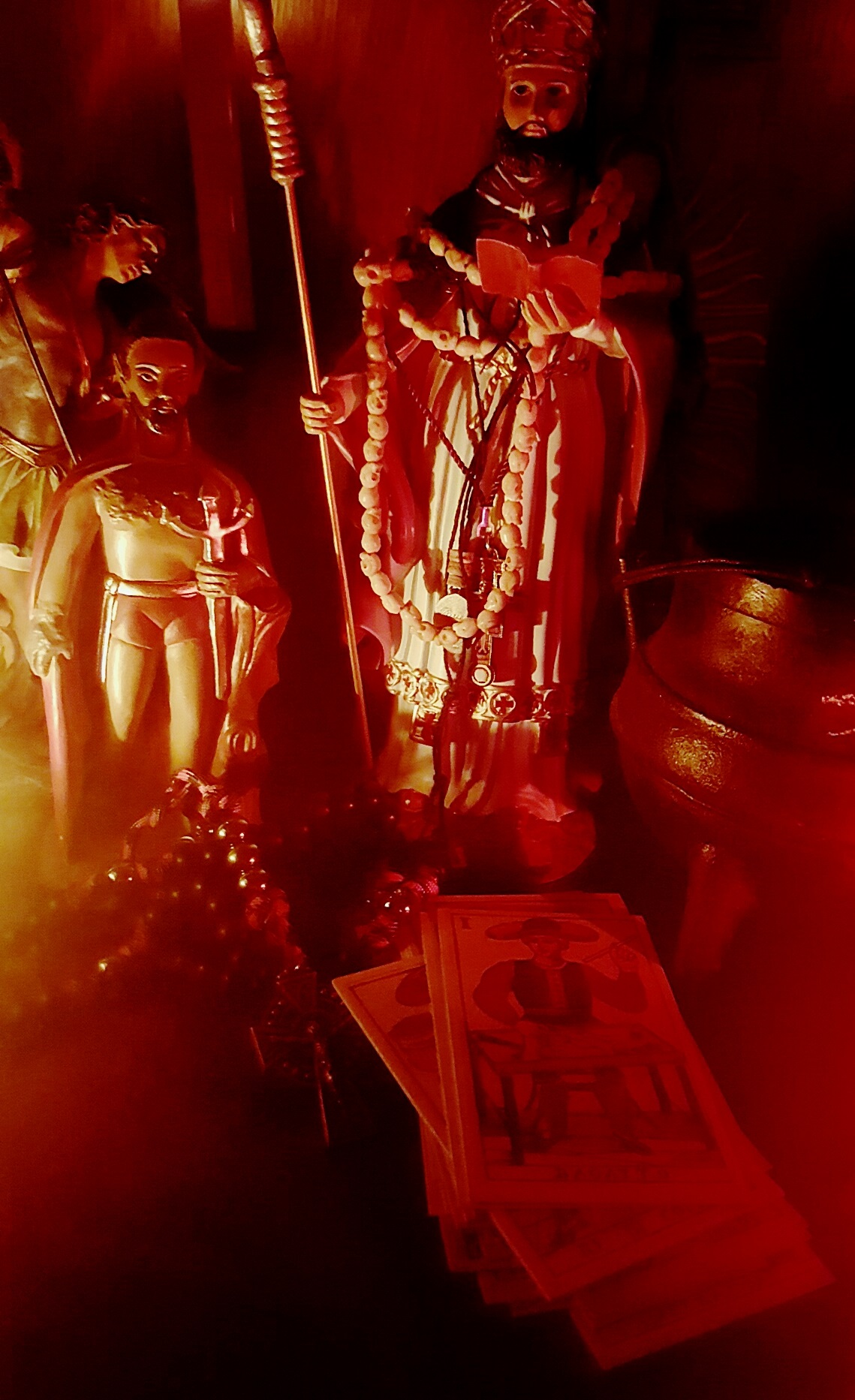St Cyprian and Dual Observance
 It was 1993, at a pub called The Flask in Highgate London, and I was having a conversation about Mastering Witchcraft with someone I spotted wearing some occult swag. I mentioned that it was strange to me that Huson used Hallowmass, Michaelmas, Candlemas and other Christian names for the Sabbats rather than the Pagan names that folks I knew were using.
It was 1993, at a pub called The Flask in Highgate London, and I was having a conversation about Mastering Witchcraft with someone I spotted wearing some occult swag. I mentioned that it was strange to me that Huson used Hallowmass, Michaelmas, Candlemas and other Christian names for the Sabbats rather than the Pagan names that folks I knew were using.
“Well..” my friend said “that’s kind of how you know the real witches here. We aren’t going back trying to put together some Disney version of the past where we ignore everything that has happened for the last 1500 years. We just roll with it. We use psalms and holy water and bible verses in spells right along side the pagan ones. That all became part of the craft…”
So my last post on the nature of St Cyprian got sparked some discussions, here and there, and at least one response post. This one from John Beckett detailing why he doesn’t work with St Cyprian – essentially because the story is one of a Pagan choosing monotheism over Paganism, and if you are trying to spread Paganism that is probably not a spirit you want to work with. Go read it, I don’t always agree with John, but he is a smart guy who has good counter points.
It’s true of course, the story of Cyprian is one of Pagan magic being thwarted by a girl who makes the sign of the cross, and a Pagan becoming a Bishop and eventually a Martyr… But that’s not where the story ends, nor why Sorcerers the world over celebrate him.
In one story Cyprian regrets burning his books of magic and dictates books of magic after his death. The magic still largely calls upon Christian forces, but it is very much magic.
In the other version of the story Cyprian never gave up magic at all, and he and Justina become yet another echo of Simon Magus and Helen, and practice magic right alongside their Christian duties as Bishop and Nun.
In my last post I was not urging that only people who are dedicated Christians should work with Cyprian, only that they not try to ignore or replace the role of Christianity in his practice. Pagans do not have to choose between Christianity and Pagan practices – they can do both as Witches have for hundreds of years. This is how Cyprian eventually becomes interwoven in the legends of Portugese Witches, the same cult that supposedly taught Maria Padhila, and how Exu Meia Noite gets credited with tutoring Cyprian.
If you practice a Paganism defined as everything is ok that is not Christian or Abrahamic, than thats fine. If however you are primarily interested in magical traditions, then you lose a LOT by ignoring Christianity and other Abrahamic faiths. People all over the world have practiced either a dual-observance or a folk-Christianity that does not have any conflicted feelings about magic.. It is worth remembering that most of Christs critics in the first two centuries accused him of being a Sorcerer.
